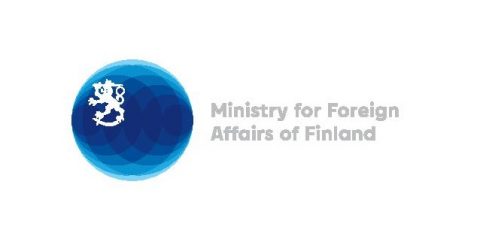Ministry for Foreign Affairs of Finland
Ministry for Foreign Affairs
- Finn Church Aid Global Programme Annual Report 2019
- Finn Church Aid’s Programme Plan 2015-2017, MFA frame funding
- Finn Church Aid Global Programme Annual Report 2015
- Finn Church Aid Global Programme Annual Report 2014 and Final Programme Report 2013-2014
- Finn Church Aid’s Partnership Agreement Annual Report 2013
- Finn Church Aid’s Partnership Agreement Annual Report 2012

The Ministry for Foreign Affairs of Finland (MFA) provides assistance for developing countries and humanitarian assistance where needed. Finland’s development policy is focused on achieving Agenda 2030 and the UN Sustainable Development Goals and promoting human rights, equality and democracy.
Finland’s Development Policy has four areas of emphasis:
- Strengthening the status and rights of women and girls, with an emphasis on sexual and reproductive health and rights, with an emphasis on sexual and reproductive health and rights
- Strengthening the economic base of developing countries and creating jobs, with an emphasis on innovations and the role of women in the economy and female entrepreneurship
- Education, well-functioning societies and democracy, with an emphasis on high-quality education, improved tax systems and support for democracy and the rule of law
- Climate change and natural resources, with an emphasis on strengthening adaptation alongside mitigation of climate change, food security and water, meteorology and disaster risk prevention, forests and safeguarding biodiversity
Integrated in the above mentioned focus areas, three crosscutting objectives should be a part of all development activities: gender equality, climate sustainability and reduction of inequality. In line with the UN Universal Declaration of Human Rights, Finland is strongly committed in human rights-based development policy.
Finnish MFA appropriated a total of 1,102.6 million euros in 2014 (0.55 % of GNI per capita) for development cooperation and humanitarian assistance, of which approximately 10 % is directed to development cooperation through NGOs, and another 10 % for humanitarian assistance. Therefore, most of the funds are channeled bilaterally to long-term partner countries, and multilaterally through different institutions (United Nations’ agencies and development finance institutions) as well as EU cooperation.
However, the MFA considers the work of NGOs as complementing the public bilateral and multilateral development cooperation. NGOs have direct contacts between the civil societies and the poorest people in a variety of countries, thus having important networks in order to reach the most vulnerable people. Furthermore, geographical focus areas of the NGOs may differ from the MFA’s bilateral focus countries complementing the given assistance also from this perspective. In order to ensure the continuity of cooperation between the MFA and Finnish NGOs, the Ministry has made partnership agreements with 16 Finnish NGOs. The agreements entitle the partner NGOs to framework funding for their development programmes instead of project specific funding targeted to non-partner actors. Finn Church Aid (FCA) is one of the MFA partner NGOs having the partnership agreement since 2003.
FCA’s development programme in the MFA funding framework
Finnish MFA is the single largest donor for FCA. FCA’s Country Programmes consist of projects on each of FCA’s three strategic themes: Right to Education, Right to Livelihood and Right to Peace. Detailed information on Country Programmes, included projects and use of funds can be found in the “Partnerships Agreement Annual Report”.
The Country Programmes in the MFA framework are co-financed with FCA’s own funds. The MFA allocates a maximum of 85 per cent of the total annual expenses of the Programmes and FCA co-finances at least 15 per cent of the annual expenses. Humanitarian assistance is not included in the MFA framework, as the funding is applied separately from the MFA’s Unit for Humanitarian Assistance each year.
MFA’s humanitarian funding
MFA is one of the largest donors for FCA’s humanitarian response. Finland’s Humanitarian Policy, which is complemented by the Guideline Concerning Humanitarian Assistance and the Use of Funding Granted by MFA, defines the key principles, objectives, channels and criteria of MFA’s humanitarian funding.
UN consolidated appeals and flash appeals form the basis for MFA to determine the priority humanitarian funding needs of different countries and sectors. MFA’s humanitarian funding is channelled through UN organisations, the International Red Cross and Red Crescent Movement and those Finnish NGOs that have the partner status of the European Commission Directorate-General for Humanitarian Aid and Civil Protection (ECHO). As a donor, MFA does not have any bilateral humanitarian assistance programmes and neither purchases any relief materials of its own. MFA’s support is focused on sectors with the greatest impact on saving lives and protecting livelihoods. These sectors include, but are not limited to, FCA’s sectors of focus in emergency response, Education in Emergencies and Emergency Livelihoods.
MFA allocates humanitarian funding to Finnish NGOs once a year. In addition, MFA makes funding decisions concerning sudden-onset crises throughout the year as necessary.